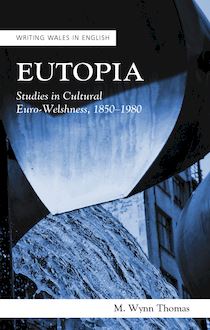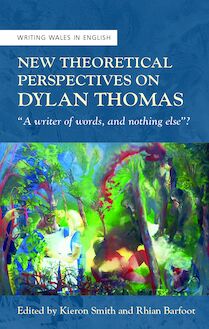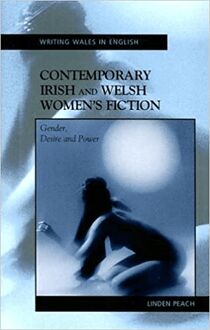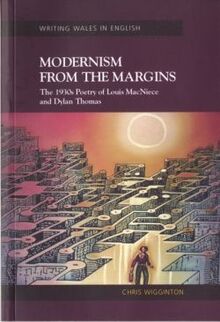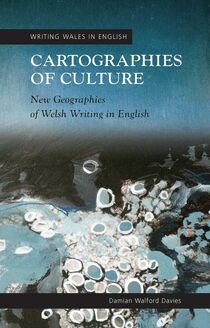In the Shadow of the Pulpit , livre ebook
126
pages
English
Ebooks
2009
Vous pourrez modifier la taille du texte de cet ouvrage
Obtenez un accès à la bibliothèque pour le consulter en ligne En savoir plus
Découvre YouScribe en t'inscrivant gratuitement
Découvre YouScribe en t'inscrivant gratuitement
126
pages
English
Ebooks
2009
Vous pourrez modifier la taille du texte de cet ouvrage
Obtenez un accès à la bibliothèque pour le consulter en ligne En savoir plus
Publié par
Date de parution
15 octobre 2009
Nombre de lectures
3
EAN13
9781783164776
Langue
English
Poids de l'ouvrage
29 Mo
Publié par
Date de parution
15 octobre 2009
Nombre de lectures
3
EAN13
9781783164776
Langue
English
Poids de l'ouvrage
29 Mo
CREW series of Critical and Scholarly Studies General Editor: Professor M. Wynn Thomas (CREW, Swansea University)
This CREW series is dedicated to Emyr Humphreys, a major figure in the literary culture of modern Wales, a founding patron of the Centre for Research into the English Literature and Language of Wales , and, along with Gillian Clarke and Seamus Heaney, one of CREW ’s Honorary Associates. Grateful thanks are due to the late Richard Dynevor for making this series possible.
Other titles in the series
Stephen Knight, A Hundred Years of Fiction (978-0-7083-1846-1) Barbara Prys-Williams, Twentieth-Century Autobiography (978-0-7083-1891-1)
Kirsti Bohata, Postcolonialism Revisited (978-0-7083-1892-8)
Chris Wigginton, Modernism from the Margins (978-0-7083-1927-7)
Linden Peach, Contemporary Irish and Welsh Women’s Fiction (978-0-7083-1998-7)
Sarah Prescott, Eighteenth-Century Writing from Wales: Bards and Britons (978-0-7083-2053-2)
Hywel Dix, After Raymond Williams: Cultural Materialism and the Break-Up of Britain (978-0-7083-2153-9)
Matthew Jarvis, Welsh Environments in Contemporary Welsh Poetry (978-0-7083-2152-2)
Harri Garrod Roberts, Embodying Identity: Representations of the Body in Welsh Literature (978-0-7083-2169-0)
Diane Green, Emyr Humphreys: A Postcolonial Novelist? (978-0-7083-2217-8)
In the Shadow of the Pulpit
Literature and Nonconformist Wales
M . WYNN THOMAS
© M. Wynn Thomas, 2010
All rights reserved. No part of this book may be reproduced in any material form (including photocopying or storing it in any medium by electronic means and whether or not transiently or incidentally to some other use of this publication) without the written permission of the copyright owner except in accordance with the provisions of the Copyright, Designs and Patents Act 1988. Applications for the copyright owner’s written permission to reproduce any part of this publication should be addressed to The University of Wales Press, 10 Columbus Walk, Brigantine Place, Cardiff, CF10 4UP.
www.uwp.co.uk
British Library Cataloguing-in-Publication Data A catalogue record for this book is available from the British Library.
ISBN 978-0-7083-2225-3 e-ISBN 978-1-78316-477-6
The right of M. Wynn Thomas to be identified as author of this work has been asserted by him in accordance with sections 77, 78 and 79 of the Copyright, Designs and Patents Act 1988.
Cover image: John Piper, Welsh Chapel, Solva , 1939. By permission of the National Library of Wales and the artist’s estate
Contents
General Editor’s Preface
Acknowledgements
List of Illustrations
Introduction
Preacher’s Wor(l)d
1 A Bluffer’s Guide to Welsh Nonconformity
2 The Long Nonconformist Century
3 Bringing Nonconformity to Book
Writer’s Wor(l)d
4 War of Words: The Preacher and the Writer
5 Spoiled Preachers
6 Wales BC
Individual Worlds
7 ‘Marlais’: Dylan Thomas and the ‘Tin Bethels’
8 ‘Fucking and Forgiveness’: The Case of Glyn Jones
9 ‘Solid in Goodly Counsel’: The Chapels Write Back
Epilogue
Notes
G ENERAL E DITOR’S P REFACE
The aim of this series is to produce a body of scholarly and critical work that reflects the richness and variety of the English-language literature of modern Wales. Drawing upon the expertise both of established specialists and of younger scholars, it will seek to take advantage of the concepts, models and discourses current in the best contemporary studies to promote a better understanding of the literature’s significance, viewed not only as an expression of Welsh culture but also as an instance of modern literatures in English worldwide. In addition, it will seek to make available the scholarly materials (such as bibliographies) necessary for this kind of advanced, informed study.
M. Wynn Thomas CREW ( Centre for Research into the English Literature and Language of Wales ) Swansea University
Er cof annwyl am mam-gu, un o ‘ferched Evan Roberts’, ac am mam a ’nhad .
I have thought about that very often – how the times change, and the same words that carry a good many people into the howling wilderness in one generation are irksome or meaningless in the next.
Marilynne Robinson, Gilead
Evan Roberts and ladies. Mary Davies is standing, extreme right .
A CKNOWLEDGEMENTS
Many friends and colleagues have readily and generously commented on this text. My very particular thanks go to Emyr Humphreys and Daniel Williams for reading it all. Parts of it were examined by Kirsti Bohata, Stevie Davies and R. Geraint Gruffydd, to all of whom I am deeply grateful. Catherine Belsey kindly helped me to grapple with Foucault. The information and advice provided by Jane Aaron and Sally Roberts Jones proved utterly invaluable. The substantial expertise of both in the literature of the eighteenth and nineteenth centuries underpins my own discussions of this period. I am also very appreciative of the opportunities afforded me by the following universities and institutions to trial some of the ideas that appear in this book in the form of invited lectures: Bangor University, Lampeter University, the University of Wales (under the auspices of the National Eisteddfod). And I owe a substantial debt of gratitude to Siân Chapman, Dafydd Jones, Eira Fenn Gaunt, Sarah Lewis and others at the University of Wales Press for their contribution not only to this volume but to the series as a whole.
For kind permission to use materials from works for which they hold the publication rights I am very grateful to the following presses: Carcanet, David Higham Associates, Gwasg Gomer, Honno, Parthian, Planet, Seren, University of Wales Press. Thanks are also due to Farrar, Straus and Giroux for permission to print eight lines from ‘Waking in the Blue’ from Robert Lowell, Collected Poems (Copyright 2003 Harriet Lowell and Sheridan Lowell). And the extract from Marilynne Robinson’s Gilead (London: Virago, 2008) is reproduced with the kind permission of the Little, Brown Book Group. All the photographs in the body of the text are the work of John Thomas, a diligent chronicler of Welsh life in the later nineteenth century. They are reproduced here with the kind permission of the National Library of Wales.
As is apparent from the text, cherished memories of my mam-gu and of my mother and my father have been my constant companions throughout the period of researching and writing this text. And finally, I would like to thank my family – Karen, Elin, Bob and Joseph bach– for providing the warm supporting environment without which it would be impossible for me to function as a person or as a scholar. Diolch arbennig i chi, unwaith yn rhagor.
L IST OF I LLUSTRATIONS
With the exception of the first photograph, Evan Roberts and ladies, in the author’s own collection, all of the following belong to the John Thomas Collection held at the National Library of Wales.
Evan Roberts and ladies
Bryn-crug chapel, Tywyn, with Nain Griff Brynglas
Bwlch-y-Rhiw chapel, Cil-y-cwm
Calvinistic Methodist chapel, Trawsfynydd
Adults of Tabernacle chapel, Aberdyfi
Hawen chapel, Troed yr Aur
Officials of Y Ffor chapel, Abererch
Deacons of the Calvinistic Methodist chapel, Y Gyffylliog
Llwynrhydowen old (Unitarian) chapel
Baptist deacons, Llansannan
Cwm chapel and shop, Penmachno
Saron chapel, Bodedern
Introduction
Bryn-crug chapel, Tywyn, with Nain Griff Brynglas
I cannot be sure what I remember, but it was Not a heroic escape, a grave Hypocrisy strangled, the cortège Of deacons stunned by one Honest stroke.
Roland Mathias, ‘Testament’
On Wednesday 9 November 1904, a striking event occurred within the plain walls of Brynteg Congregational Chapel, Penyrheol, Gorseinon, a thriving industrial town on the outskirts of Swansea:
One of the most remarkable utterances of this remarkable night was that of a woman who gave a vivid description of a vision which she had seen the previous evening. ‘I saw,’ she said, ‘a great expanse of beautiful land, with friendly faces peopling it. Between me and this golden country was a shining river, crossed by a plank. I was anxious to cross, but feared that the plank would not support me. But at that moment I gave myself to God, and there came over me a great wave of faith, and I crossed in safety.’ 1
A century later, it has become increasingly difficult for us to cross that plank to meet those from the time when ‘a preacher caught fire / and burned steadily before them / with a strange light’, so that they ‘sang their amens / fiercely, narrow but saved / in a way that men are not now’. 2 One result is that we are cut off not only from the events of 1904–5 – the remarkable religious revival associated with the enigmatic figure of Evan Roberts – but from the whole Welsh Nonconformist experience of which it was one of the late, and most extraordinary, products.
With his chiselled good looks, Evan Roberts was the Ivor Novello of evangelists. His Revival was to burn its searing way right across Wales and on into parts of England, Scotland and Ireland. It was even to attract people from ‘Australia, Africa, Asia, America, and various parts of Europe’. 3 So why an interest in that particular moment, on that particular evening? Because my grandmother was there. Despite constant straining, my mind’s eye refuses obstinately to bring her into focus, but she must have been a figure somewhere near the centre of the scene. I find it impossible to believe she was the visionary herself. She may just, though, have been another ‘shy young lady’, who had nervously risen to her feet in that same chapel the previous evening to say ‘I have a corner in the house where I pray daily, and because of that I am not afraid to face the public in this manner.’ 4 Why do these words sound a little more convincingly hers? Because mam-gu was one of those young women, silenced by nineteenth-century Welsh Nonconformist religion, who suddenly found their tongues in the legendary ‘1904–5 Revival’. As did many ordinary people






